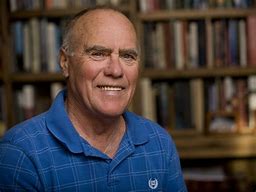Griner
Being captive in any jail or prison must be awful and even worse if the confinement is in a foreign country. Visits from loved ones probably are rare, if not impossible, and the government under which you are being held may not be a “friend” of the United States. Your only contact with other Americans is likely someone who works at the American Embassy, which is a relationship built on politics and diplomacy, not love. It’s necessary and appreciated, but not warm and fuzzy.
Brittney Griner has been imprisoned in Russia for four months and just pleaded guilty. According to Reuters and Russian media reports, she told the judge at the second hearing of her trial, “I’d like to plead guilty, your honor. But there was no intent. I didn’t want to break the law. I’d like to give my testimony later. I need time to prepare.” Griner explained that she had packed in a rush and the vape cartridges made it into her bag by accident. If found guilty Griner could be sentenced to ten years imprisonment.
As a seasoned college, professional, and Olympic basketball star, Griner surely knows that it matters not if a player intends to commit a foul, but when she does commit a foul, the official blows the whistle, and a penalty is assessed. The act, not the intent, is called.
Griner and many others have pleaded to U.S. officials to help her. She even sent a letter to President Biden asking him to intervene. But she admits to the foul of breaking Russian law. She was entering Russia to make money doing what she does well and says that she packed in a hurry. What? She wants us to believe that she rushed her packing for an extended period of playing basketball in a foreign country. I doubt her veracity in this explanation.
Yes, she is a fellow American and should be helped as much as possible, but not at the expense of Paul Whelan who, I have no doubt, has languished since 2018 in a Russian cell on a false charge. He needs attention first.
Griner calculated on her fame. A bad calculation, I think. She now pays the price for her act of breaking Russian law.
Letter to Coach Kennedy
In May, The Sports Column’s Matthew Paris authored a piece on how the SCOTUS would be hearing a case about an assistant public high school coach who had been suspended for praying at mid-field following games. Later, that coach’s contract was not renewed. This past Monday SCOTUS issued its judgment, ruling in the coach’s favor.
Dear Coach Joseph Kennedy:
We do not know each other. But like many Americans, I have read about you because of Monday’s U.S. Supreme Court ruling concerning your on-the-field prayers following games in Washington state. From what I read, you first began your prayers in 2015, and you said that your prayer was brief, and no player was forced to participate.
That said, I ask you to consider several things, which I offer to you as a coach with 40+ years of experience, and a Christ-follower.
As a coach, you have tremendous sway over your athletes, which I know you know. Because of your influence, please consider that you send a message to your athletes when you go to the 50-yard line after a game. They watch their coaches and want to please them. Do they come willingly to the 50-yard line or do they come because of the implied and direct pressure you send by your act?
I also ask you to consider your influence over young athletes, and whether your act brings any of them to be Christ-followers. Is your ritual (and it is a ritual) without dedication or deeper meaning? Are you teaching vain-repetition or something more Christ-like?
Is this the Christian message you want to send to the young athletes?
Jesus tells us, “… for they [Pharisees] love to pray to stand in the synagogues and the corners of the streets, that they may be seen of men…. But thou when thou prayest, enter into thy closet, and when thou hast shut thy door, pray to thy Father which is in secret.…” Matthew 6:5,6 (KJV)
The verses I quote from the book of Matthew were the words of Jesus when he rebuked religious ostentation in His Sermon on the Mount. We are instructed not to make our prayers a performance for others, but rather, as a talk with His Father, a private conversation.
I ask you to think of these things.
Roger Barbee

